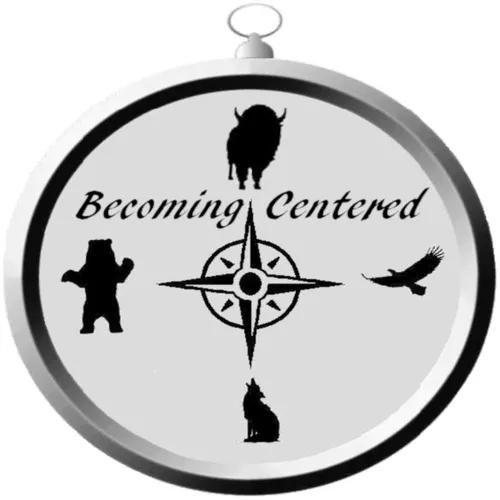
Becoming Centered
This podcast is a field guide for professionals seeking perspectives and techniques for helping others find their balanced path. It’s also for people who want to learn the self-counseling pathways, navigation tools, and practices to live a centered life. Organized into several series, this podcast focuses on: (1) understanding the territory of personal psychology, (2) tools and techniques for counseling others in how to develop a centered and balanced life, and (3) tools and techniques for navigating your own emotional, cognitive, behavioral, and self-regulation challenges.
- Update frequency
- every 8 days
- Average duration
- 29 minutes
- Episodes
- 57
- Years Active
- 2023 - 2025

17. Suicidal Ideation
This podcast episode discusses the challenging issue of dealing with suicidal ideation among child-clients in residential treatment.
The podcast offers insights into different scenarios where staff m…

16. The Aspect Compass & Meeting Kids' Needs
This podcast presents a powerful perspective for helping your child-clients become centered. It’s based on understanding your kids’ needs through The Aspect Compass, a model representing four aspect…

15. Processing Feelings
This episode explores various techniques for helping children process their feelings and develop emotional regulation skills. The episode begins with a recap of previous discussions on physiological …

14. Time Outs
This podcast episode discusses the use of timeouts as a common and effective technique in residential treatment programs working with children and adolescents. Timeouts are employed to manage disrupt…

13. Setting Firm Limits
This podcast episode explores the crucial role of structure and firm, yet respectful, limit-setting in residential care for troubled children. Structures and external boundaries are essential for cre…

12. Structure and Structural Interventions
This podcast delves into the fundamental structures of residential treatment programs and the concept of structural interventions. While theoretically residential treatment could customize programs f…

11. Neurological Coregulation
This podcast discusses the importance of coregulation in residential treatment settings for children who are emotionally, cognitively, and behaviorally disorganized. Coregulation refers to the proces…

10. After Physical Restraints
This podcast episode is part four of a series addressing the use of physical restraints and interventions in response to extreme client behaviors, particularly in residential treatment settings. The …

9. Trauma Protection with Physical Restraints
Physical Restraints tend to be in response to intense, often times violent, situations and will have some degree of traumatizing effect on both the staff and the client.
The neurochemical changes in …

8. Physical Restraints
Physical Restraints are, in my opinion, the best option for safely dealing with violent behaviors among children and youth in residential treatment.
Self-injurious behaviors need to be stopped before…

7. Physical Interventions
Physical Restraints are a complex and controversial subject that might be triggering for some people.
There are scholarly articles on this subject and many national organizations have expressed opin…

6. The Aspect Compass and Setting Limits
This episode uses The Aspect Compass to frame the role of a Residential Counselor as serving as The Chief function with the clients to set limits, to help regulate, the kids’ emotions, cognitions, an…

5. The Domain Compass and Labeling
This episode reviews The Domain Compass, which is a way to visualize four domains of psychological functioning.
In the East, there’s the domain of emotions, consisting of feelings and moods.
In the …

4. Team Building
High level team work is an absolutely essential aspect of being an effective Residential Counselor.
There’s a classic way to think about the formation of effective teams. It breaks team development…

3. Therapeutic Relationships
Therapeutic relationships help your clients become centered in four domains of psychological functioning. This can be visualized using The Domain Compass:
· In the East, there’s the domain of…

2. Professional Boundaries for Residential Counselors
Professional boundaries includes:
1. the schedule of when you’ll have contact with the kids,
2. limits on physical touch,
3. limits on personal disclosure, and
4. the …

1. The Role of Residential Counselor
Welcome to the first episode of Becoming Centered. This episode begins the Residential Counselor Orientation series, designed for the new Residential Counselor. It introduces a way to understand yo…